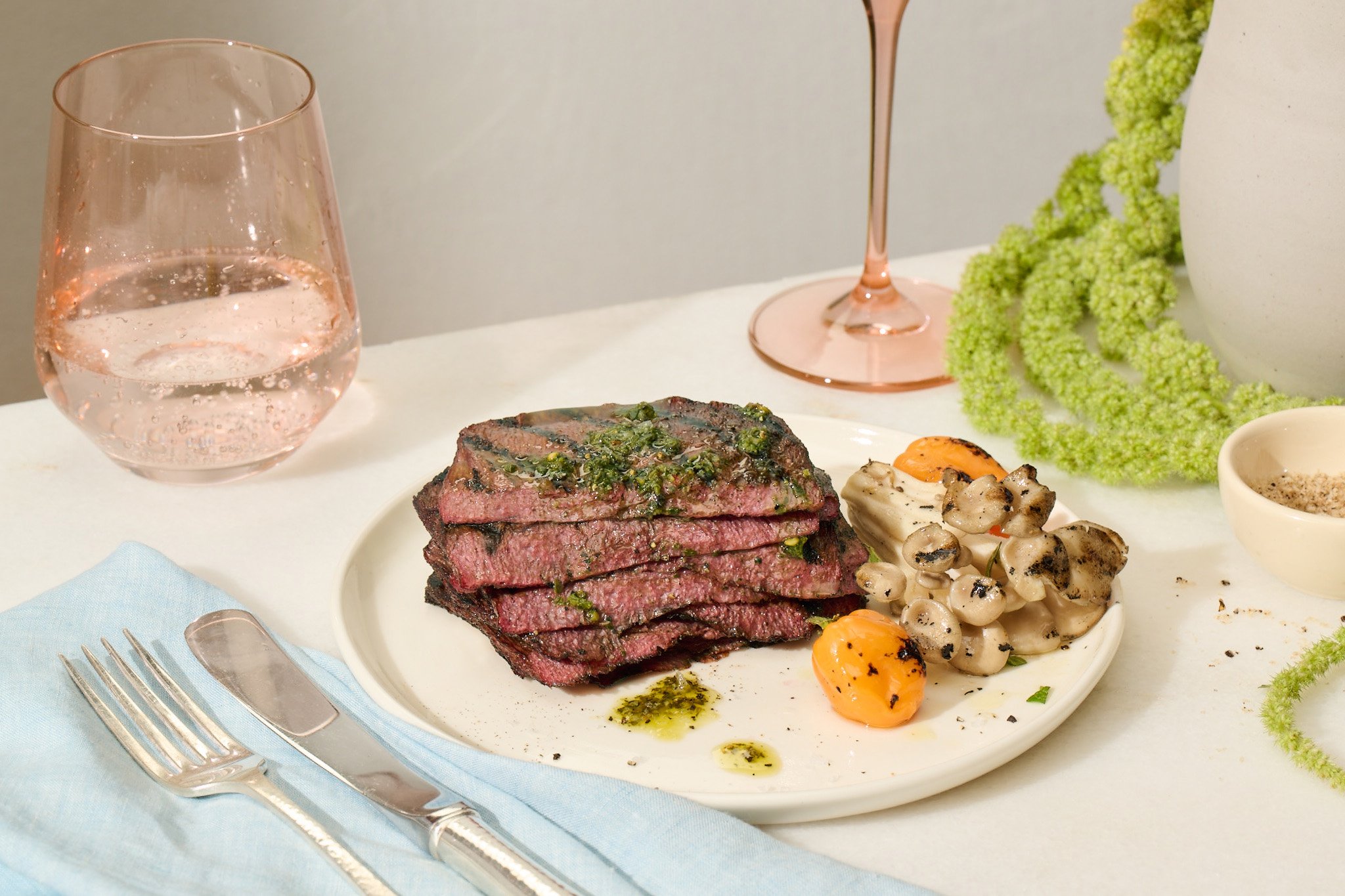Start-Up Granted World’s First Regulatory Approval To Sell Cultivated Steaks
While Singapore and the US have already approved cultivated chicken, Israel becomes the first country to approve cultivated beef - meat that’s cultivated from animal cells instead of a slaughtered animal.
Cultivated steak by Aleph Farms. Credit: Aleph Farms
A food-tech start-up has become the first company in the world to gain regulatory approval to start selling cultivated beef products.
Also known as cellular agriculture or lab-grown meat, cultivated meat production creates ‘real’ meat, but it is cultivated - grown - directly from animal cells, rather than a farmed animal. The process is projected to become a key solution in creating a more sustainable and kind global food system, by producing meat that sidesteps the environmental and ethical issues typically associated with farming and slaughtering millions of animals.
Now, Israel-based company Aleph Foods has announced that Israel’s Ministry of Health (MoH) has issued regulatory approval for the sale of the start-ups’ cultivated beef steaks.
Known as Aleph Cuts, the cultivated beef products are produced from starter cells that come from a premium Black Angus cow named Lucy, which are then coupled with a plant protein matrix made of soy and wheat. Aside from the starter cells that come from one of Lucy’s fertilized eggs, there are zero animal-derived components, nor any antibiotics.
Credit: Aleph Farms
Aleph Foods says that it has focused on beef products first as they are likely to have the most environmental impact, pointing out that conventional cattle farming has the highest environmental footprint across all of animal agriculture, and that many regions are especially reliant on imports for beef.
“This regulatory milestone, the first of its kind worldwide, reflects a comprehensive assessment of crucial factors, from toxicology and allergens to nutritional composition, microbiological safety, and chemical safety throughout the entire production process – from the initial cell isolation to processing and packaging”, said Dr. Ziva Hamama, Food Risk Management Department Director at Israel’s Ministry of Health.
And when can diners expect to try cultivated beef? Aleph Foods says its slaughter-free steaks, which are set to be priced similarly to premium conventional beef, will be available in select restaurants in Israel within the next few months before rolling out to foodservice and retail.
Which Countries Have Approved Cultivated Meat?
As an emerging field, Israel becomes only the third country to approve cultivated meat so far, but many others are expected to follow in the coming years.
“2024 stands to be a landmark year for the advancement of regulatory pathways and commercialization of cultivated meat”, predicts Yifat Gavriel, Chief of Regulatory Affairs at Aleph Farms.
Credit: Aleph Farms
Previously, Singapore became the first country in the world to approve lab-grown meat back in 2020. The landmark decision came after the Singapore Food Agency granted US company Good Meat the go-ahead to sell its lab-grown ‘chicken bites’ in Singapore.
That led Singapore to become a global leader in reimagining the world’s meat supply, with cutting-edge start-ups and conventional meat companies both working to create and market cell-based meat, dairy, and seafood.
Then in 2022, the US became the second country to approve cultivated meat for human consumption, when the California-based startup UPSIDE Foods received the green light from the US Food & Drug Administration (FDA) for its chicken made from real animal cells.
We Have A Favor To Ask…
Species Unite amplifies well-researched solutions to some of the most abusive animal industries operating today.
At this crucial moment, with worldwide momentum for change building, it’s vital we share these animal-free solutions with the world - and we need your help.
We’re a nonprofit, and so to keep sharing these solutions, we’re relying on you - with your support, we can continue our essential work in growing a powerful community of animal advocates this year.
More stories:
Species Unite
A collection of stories of those who fight the good fight on behalf of animals.






Evaluating drugs with cutting-edge technology instead of animal testing will improve drug safety and cut development times, the agency said as it reveals a roadmap to increase non-animal research techniques.